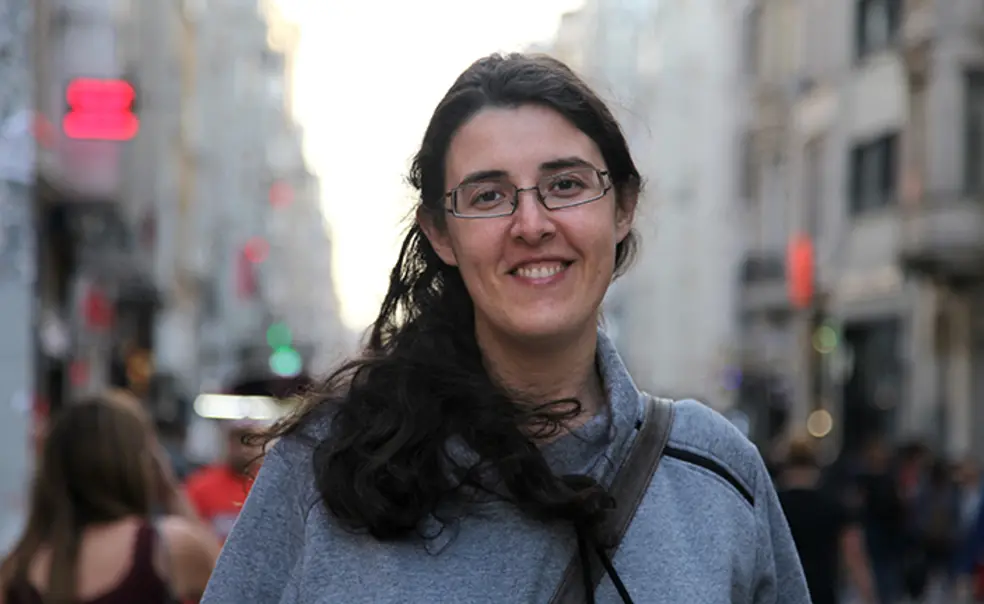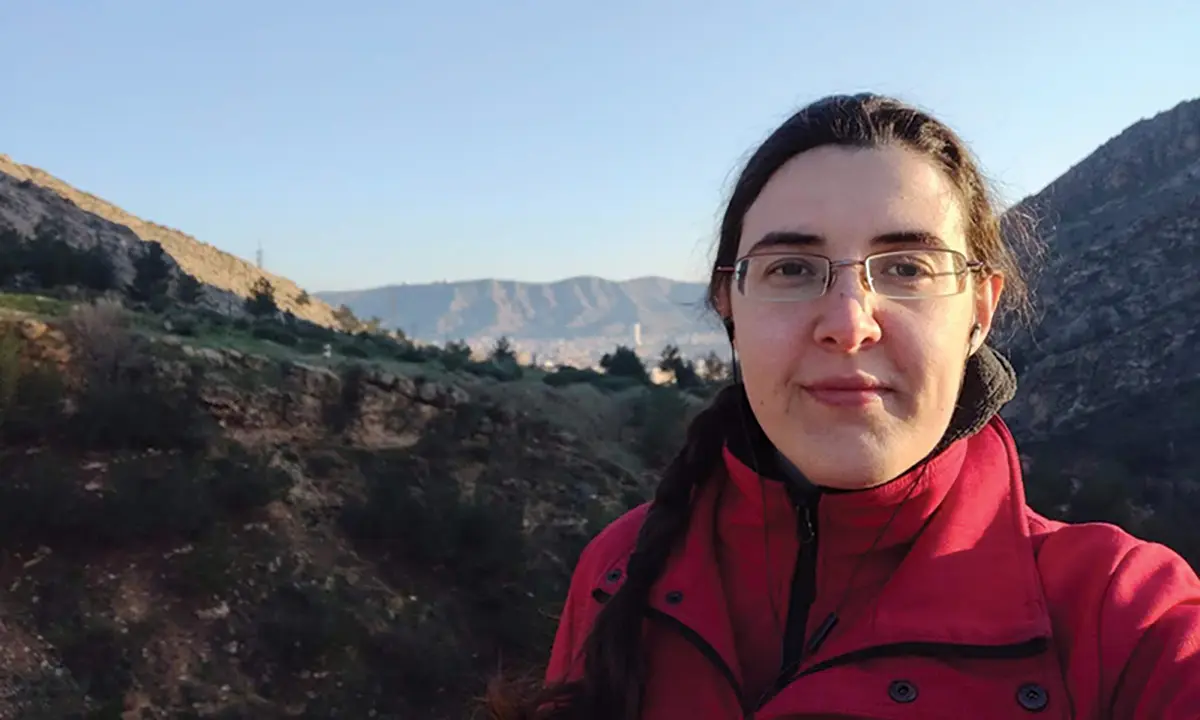Grad Student Elizabeth Tsurkov Released After Two Years in Iraq
Tsurkov was freed by Iran-backed militia Kataib Hezbollah, according to President Donald Trump
Elizabeth Tsurkov, an Israeli-Russian doctoral student at Princeton who was held hostage in Iraq for 903 days, has been freed by the Iran-backed militia Kataib Hezbollah, according to President Donald Trump.
Tsurkov “is now safely in the American Embassy in Iraq,” Trump wrote on Truth Social on Tuesday. According to the nonprofit Global Reach, which has advocated for Tsurkov’s release, she received a medical assessment in Baghdad and will continue to receive support as she is transported to a location where she will be reunited with her family.
Tsurkov’s sister, Emma Tsurkov, wrote on X: “My entire family is incredibly happy. We cannot wait to see Elizabeth and give her all the love we have been waiting to share for 903 days.” Emma Tsurkov thanked Trump; Adam Boehler, the special envoy for hostage response; Joshua Harris, the chargé d’affaires of the United States Embassy in Iraq; and Global Reach for their support for her sister’s return.
Iraq’s prime minister, Mohammed Shia’ al-Sudani, confirmed Tsurkov’s release on X and wrote that it was “as a culmination of extensive efforts exerted by our security services over the course of many months.”
Princeton University President Christopher Eisgruber ’83 wrote in a statement: “The release of Princeton graduate student Elizabeth Tsurkov brings relief and joy to the University community, and we celebrate that she will be reunited with her family.” Eisgruber thanked President Trump and Tsurkov’s friends, family, and advocates who worked to secure her release.
Tsurkov went missing while conducting fieldwork related to her approved Ph.D. dissertation topic in Baghdad in late March 2023. The Israeli prime minister’s office publicly announced in July that she had been abducted by Kataib Hezbollah, considered to be a terrorist organization by the U.S. government. The group is closely linked to Iran’s Islamic Revolutionary Guard but is separate from the Hezbollah movement.
Earlier in the year, Emma Tsurkov met with the office of Boehler; Steve Witkoff, presidential special envoy to the Middle East; Sen. Andy Kim (D-N.J.); and other bipartisan congressional staffers from both the House of Representatives and Senate to discuss her sister’s case.
Emma Tsurkov told PAW in March that the U.S. government was directly communicating with the Iraqi government to “make clear that my sister’s captivity is no longer a nuisance that can be just ignored, but actually a serious priority.”
Global Reach CEO Mickey Bergman wrote in a press release: “This is a day we have all been waiting for.” He credited the Trump administration for bringing Tsurkov home and added how the organization has supported her family for almost the duration of her kidnapping.
The only lead in the case came from a video broadcast on Iraqi television and circulated on pro-Iranian social media in November 2023, showing Tsurkov confessing to working for the CIA and Mossad. Her family has denied such links.
There has been advocacy on and off campus for Tsurkov’s release. On March 21, 2024, the first anniversary of Tsurkov’s kidnapping, a group of graduate students and undergraduates, largely from the politics department, coordinated with Emma Tsurkov to boost the family’s efforts and raise awareness on campus, where they used listservs to get the word out. Emma Tsurkov stood outside the Iraqi Embassy in Washington, D.C., surrounded by protesters with signs reading, “Free Elizabeth Tsurkov Now.”
The University marked the anniversary of Tsurkov’s abduction with a social media post expressing sadness and concern for her well-being and noted that Princeton is continuing “to urge the U.S. government to do everything it can to assist in bringing her home safely.”
Tsurkov’s website says that her research focuses on the Syrian uprising and civil war. She previously conducted fieldwork in Syria, Jordan, Iraq, Turkey, and other countries in the region.













2 Responses
Richard M. Waugaman ’70
3 Months AgoGrateful for Tsurkov’s Release and Eisgruber’s Actions
I’m glad that Elizabeth Tsurkov has been released. If Trump did indeed play a role in her release, that’s one of the very few good things he has done, in my opinion.
I don’t agree with Michael Goldstein, however, that Princeton is indifferent to its Jewish students. To the contrary, Princeton seems to have leaned too much in favor of Israel, giving too little support to the courageous students who have tried to draw attention to Israel’s long history of mistreating the Palestinian people, especially during the past two years.
I, for one, am deeply grateful to President Eisgruber for courageously resisting Trump. And we must all be careful not to lump all Muslims with Islamist terrorists. My friend Akbar Ahmed, formerly a visiting professor at the Institute for Advanced Study at Princeton, just published his book, America at the Crossroads: Race, Islam, and Leadership. At a book launching event I attended yesterday at American University, Akbar spoke of the long history of slanders against Islam, after the tragic events of 9/11. After all, we don’t lump all Christians with the IRA terrorists of the “Troubles” of the late 20th century in Ireland.
Michael Goldstein ’78
5 Months AgoPutting Students in Danger
In what is literally a miracle, Princeton graduate student Elizabeth Tsurkov has been released from more than two years of terrorist captivity in Iraq, thanks to pressure from President Donald Trump and the State Department. As President Trump noted, “I am pleased to report that Elizabeth Tsurkov, a Princeton Student, whose sister is an American Citizen, was just released by Kata’ib Hezbollah (MILITANT Hezbollah), and is now safely in the American Embassy in Iraq after being tortured for many months. I will always fight for JUSTICE, and never give up. HAMAS, RELEASE THE HOSTAGES, NOW!”
Ironically, although President Eisgruber has been styled as “The University President Willing to Fight Trump” (The New York Times), Tsurkov is in fact the second Princeton graduate student that Trump has had to help release from an Islamist tyranny.
The University’s indifference to its Jewish students is appalling. It is time for Princeton to apologize to Tsurkov for approving a dangerous trip to do her graduate work, even though her advisers knew well she was both Jewish and an Israeli citizen. If the precedent holds for the last graduate student Princeton lost to 40 months of captivity in Iran, Xiyue Wang, the University might have to pay a significant sum to resolve claims over its negligence and indifference to putting its students in danger.